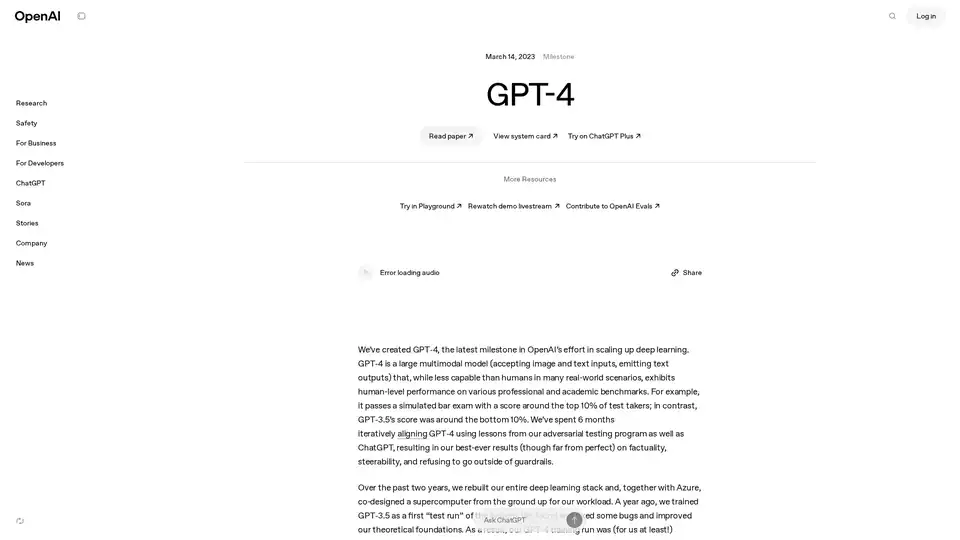
GPT-4
Overview of GPT-4
GPT-4: OpenAI's Cutting-Edge Multimodal AI Model
What is GPT-4? GPT-4 is the latest milestone in OpenAI's effort to scale up deep learning, succeeding GPT-3.5. It is a large multimodal model, accepting both image and text inputs and emitting text outputs. While it may not surpass human capabilities in every real-world scenario, GPT-4 exhibits human-level performance across a variety of professional and academic benchmarks.
Key Features and Capabilities
- Multimodal Input: GPT-4 accepts both image and text as input, allowing for a broader range of applications.
- Improved Performance: Demonstrates significantly improved performance compared to GPT-3.5 on exams and benchmarks.
- Factuality and Steerability: GPT-4 has been iteratively aligned using lessons from adversarial testing and ChatGPT, resulting in better factuality, steerability, and adherence to safety guidelines.
- Multilingual Capabilities: Outperforms GPT-3.5 in most languages tested, including low-resource languages.
- Customizable AI Style: Developers can prescribe their AI's style and task through system messages, allowing for greater customization.
How does GPT-4 work?
GPT-4 was trained using publicly available data and data licensed by OpenAI. It predicts the next word in a document and is fine-tuned using reinforcement learning with human feedback (RLHF) to align it with user intent and safety guidelines.
GPT-4 Applications and Use Cases
GPT-4 is being used internally at OpenAI for various functions, including support, sales, content moderation, and programming. It is also assisting humans in evaluating AI outputs.
GPT-4 can be applied across a wide range of domains, including:
- AI-powered Chatbots: Enhanced conversational abilities make it ideal for customer service and interactive applications.
- Content Generation: Create high-quality articles, blog posts, marketing copy, and more.
- Code Generation: Assist developers in writing code and identifying vulnerabilities.
- Data Analysis: Analyze complex datasets and extract valuable insights.
- Research: Aid in scientific research by generating hypotheses and analyzing data.
Who is GPT-4 For?
GPT-4 is designed for a broad audience, including:
- Developers: Utilize the GPT-4 API to build innovative AI-powered applications.
- Businesses: Enhance customer service, automate tasks, and improve decision-making.
- Researchers: Conduct cutting-edge research and explore the potential of AI.
- Educators: Create engaging learning experiences and personalize education.
Limitations and Risks
Despite its advanced capabilities, GPT-4 has limitations. It can still make reasoning errors, "hallucinate" facts, and exhibit biases in its outputs. OpenAI has implemented various mitigations to address these risks, including:
- Data Filtering: Selection and filtering of pretraining data to reduce harmful content.
- Expert Engagement: Engaging experts to adversarially test the model and identify vulnerabilities.
- Safety Improvements: Incorporating an additional safety reward signal during RLHF training to reduce harmful outputs.
Accessing GPT-4
- ChatGPT Plus: Subscribers can access GPT-4 on chatgpt.com with a usage cap.
- API: Access to the GPT-4 API is available via a waitlist. Pricing is tiered based on usage.
Predictable Scaling
A key focus of the GPT-4 project was building a deep learning stack that scales predictably. This involved developing infrastructure and optimization techniques that exhibit consistent behavior across multiple scales. As a result, OpenAI was able to accurately predict GPT-4's final loss on its internal codebase by extrapolating from models trained using 10,000x less compute.
Conclusion
GPT-4 represents a significant advancement in AI technology, offering improved performance, multimodality, and steerability. While it has limitations and risks, OpenAI is committed to addressing these challenges and ensuring that GPT-4 is used responsibly to benefit society.
Best Alternative Tools to "GPT-4"
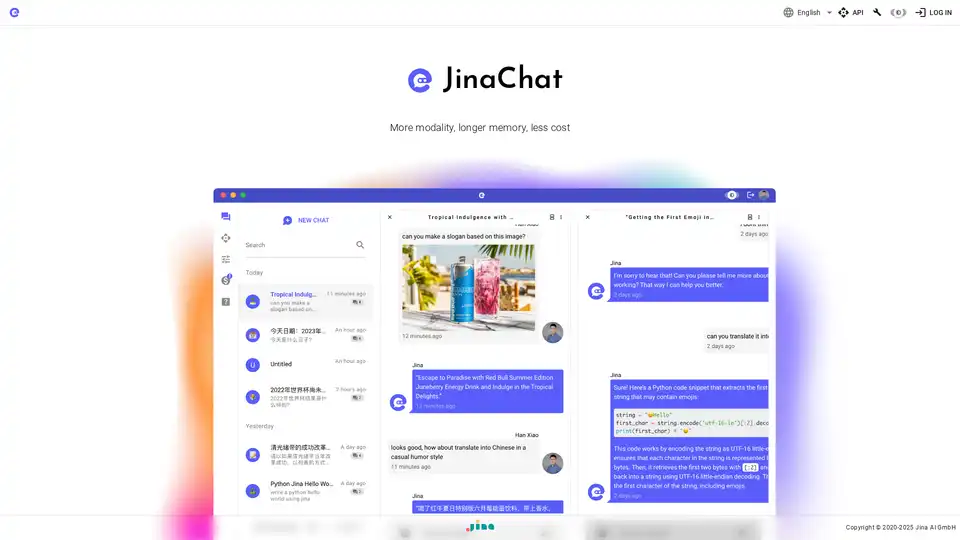
JinaChat is a multimodal LLM service designed for pro users, offering long memory, multimodal chat capabilities, and a budget-friendly API, making it ideal for complex applications.
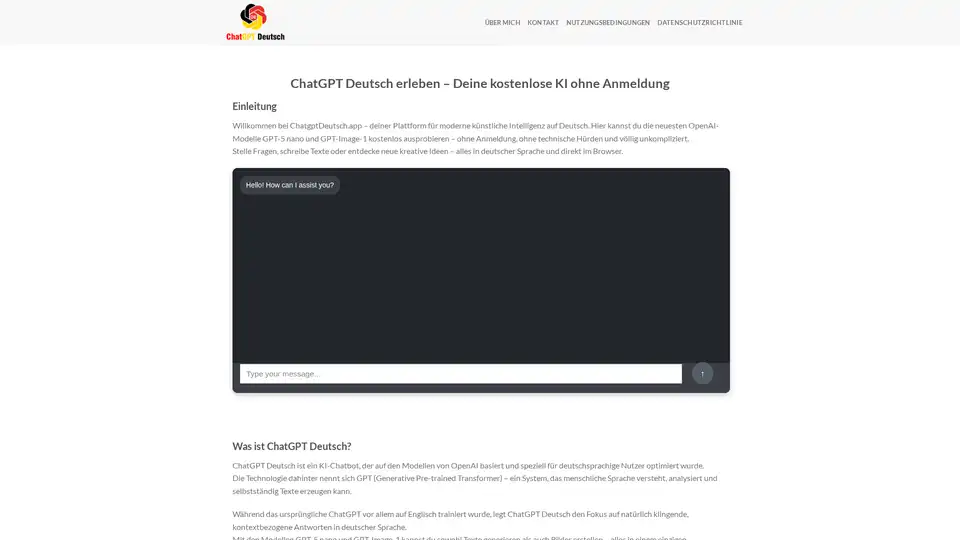
ChatGPT Deutsch offers free access to OpenAI's GPT-5 nano and GPT-Image-1 models in German, without registration. It provides an easy and user-friendly interface for generating text and images.

Khoj AI is a personal AI research copilot that helps you understand documents, create content, and automate tasks. It supports multiple AI models, offers transparency, and can be accessed anywhere.
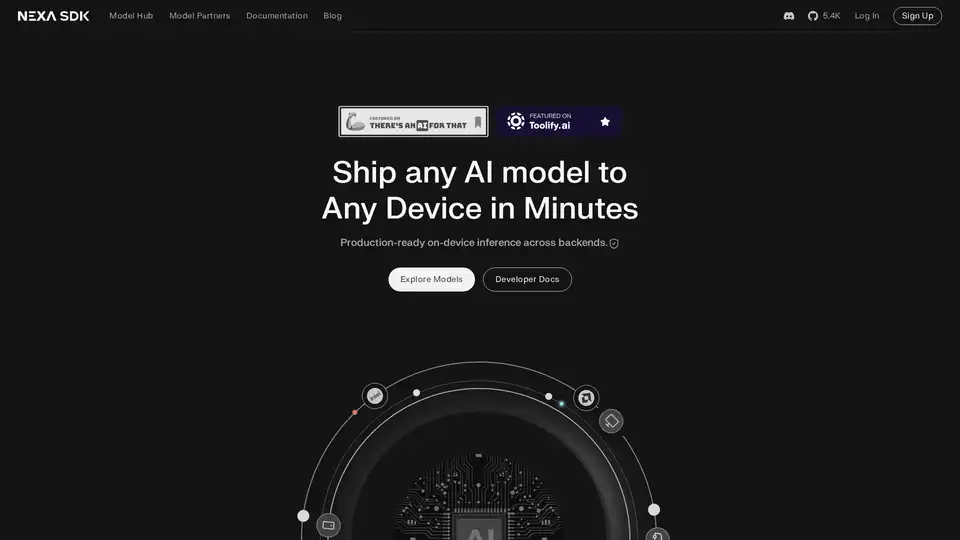
Nexa SDK enables fast and private on-device AI inference for LLMs, multimodal, ASR & TTS models. Deploy to mobile, PC, automotive & IoT devices with production-ready performance across NPU, GPU & CPU.
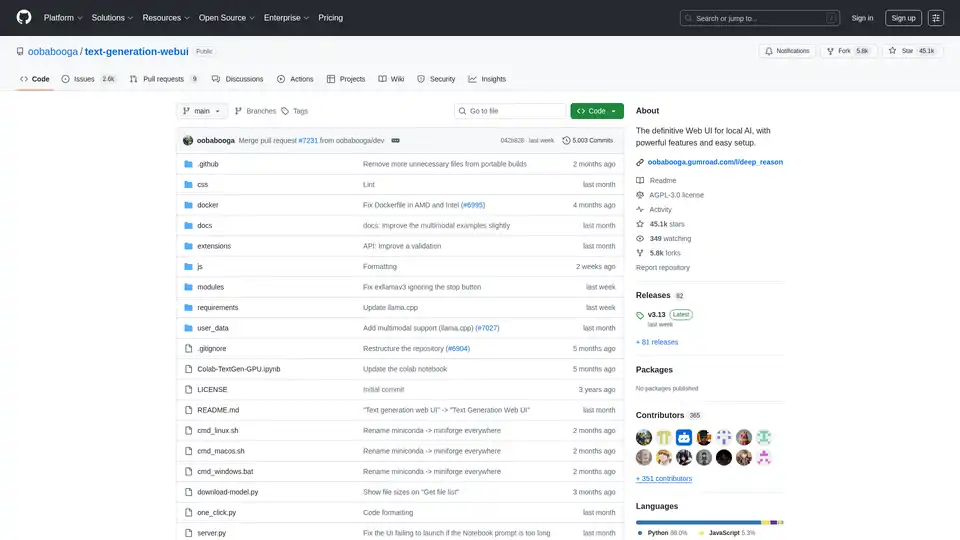
Text Generation Web UI is a powerful, user-friendly Gradio web interface for local AI large language models. Supports multiple backends, extensions, and offers offline privacy.
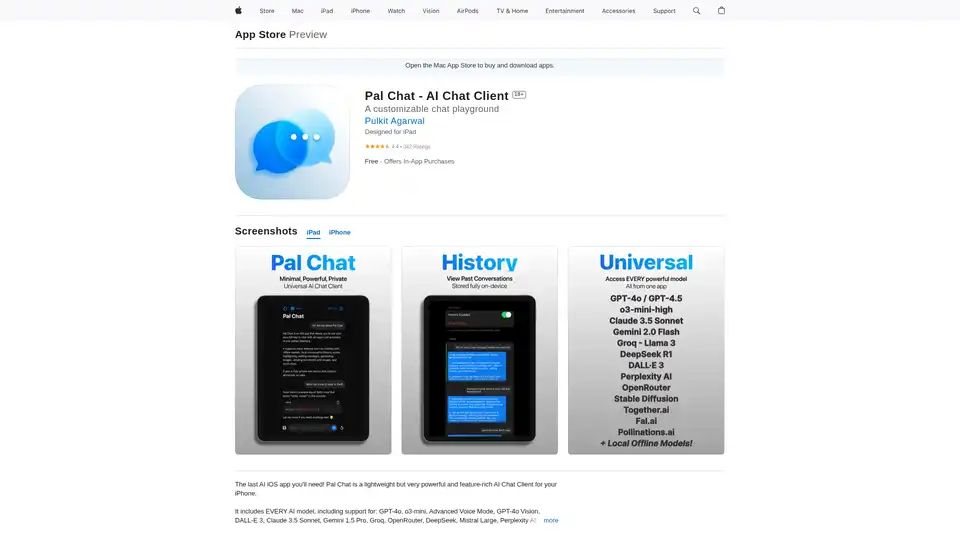
Discover Pal Chat, the lightweight yet powerful AI chat client for iOS. Access GPT-4o, Claude 3.5, and more models with full privacy—no data collected. Generate images, edit prompts, and enjoy seamless AI interactions on your iPhone or iPad.
Lightning-fast AI platform for developers. Deploy, fine-tune, and run 200+ optimized LLMs and multimodal models with simple APIs - SiliconFlow.
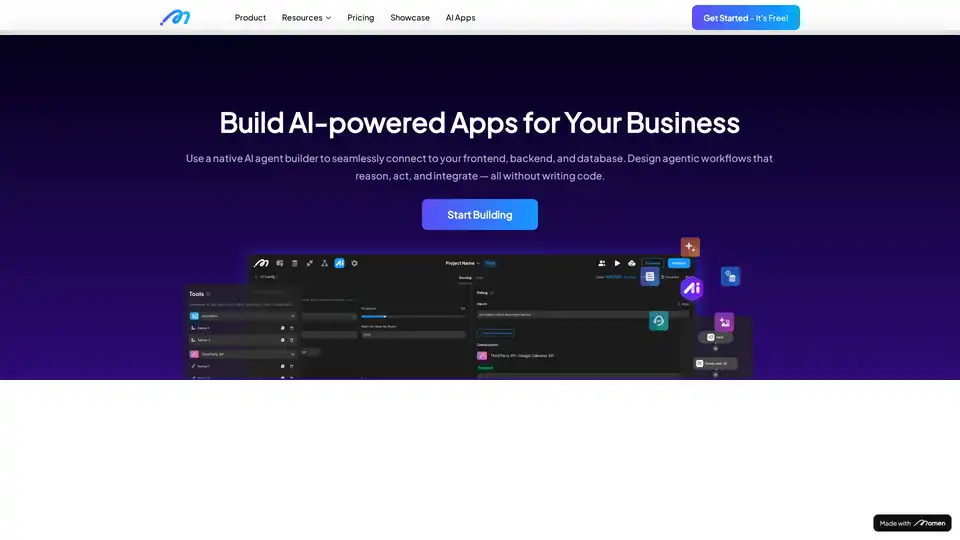
Create AI-powered apps and AI agents that automatically plan and execute your tasks. Build your full-stack AI apps and monetize it with Momen's flexible GenAI app dev framework. Get started today!
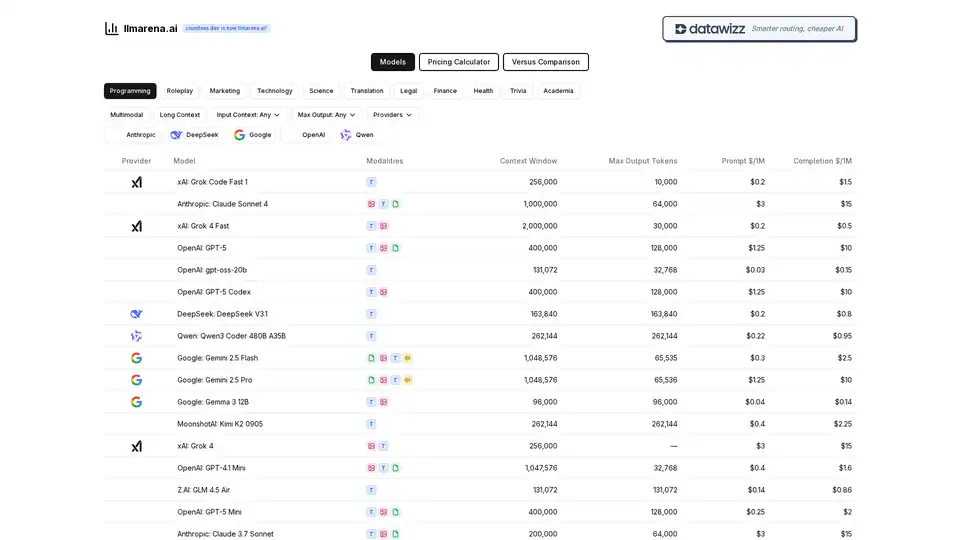
Compare AI models easily! All providers in one place. Find the best LLM for your needs with our comprehensive pricing calculator and feature comparison tool. OpenAI, Anthropic, Google, and more.
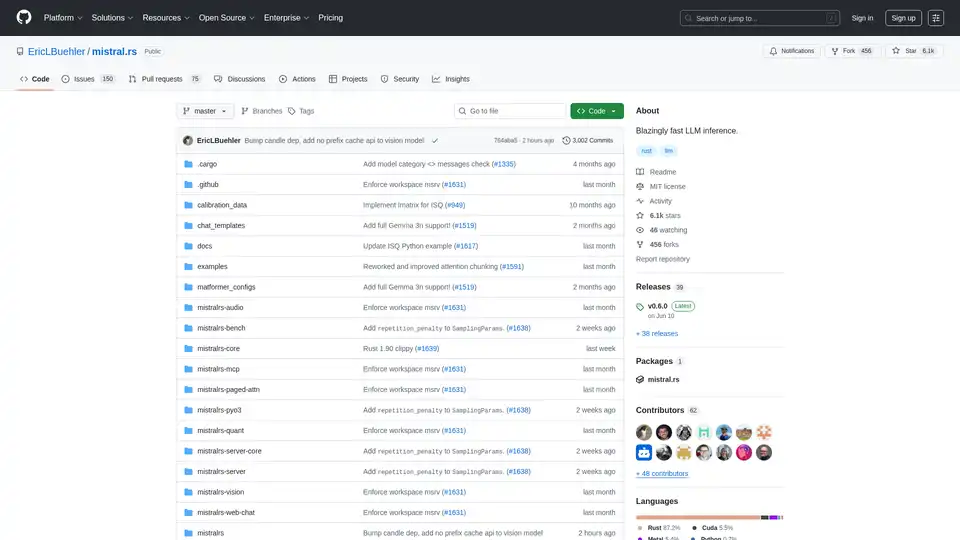
mistral.rs is a blazingly fast LLM inference engine written in Rust, supporting multimodal workflows and quantization. Offers Rust, Python, and OpenAI-compatible HTTP server APIs.
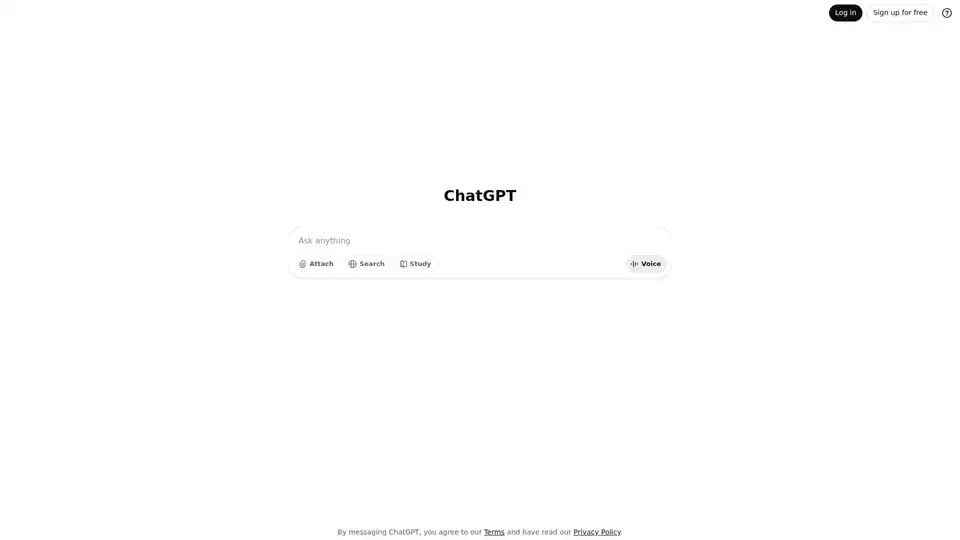
ChatGPT is OpenAI's conversational AI system that helps with writing, learning, brainstorming, and productivity through natural language interactions.
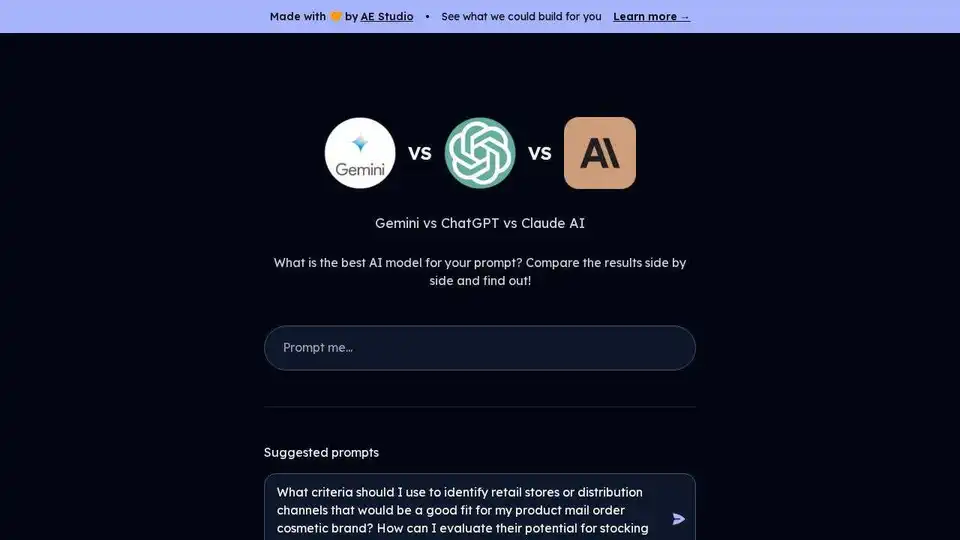
Compare and share side-by-side prompts with Google's Gemini Pro vs OpenAI's ChatGPT to find the best AI model for your needs.
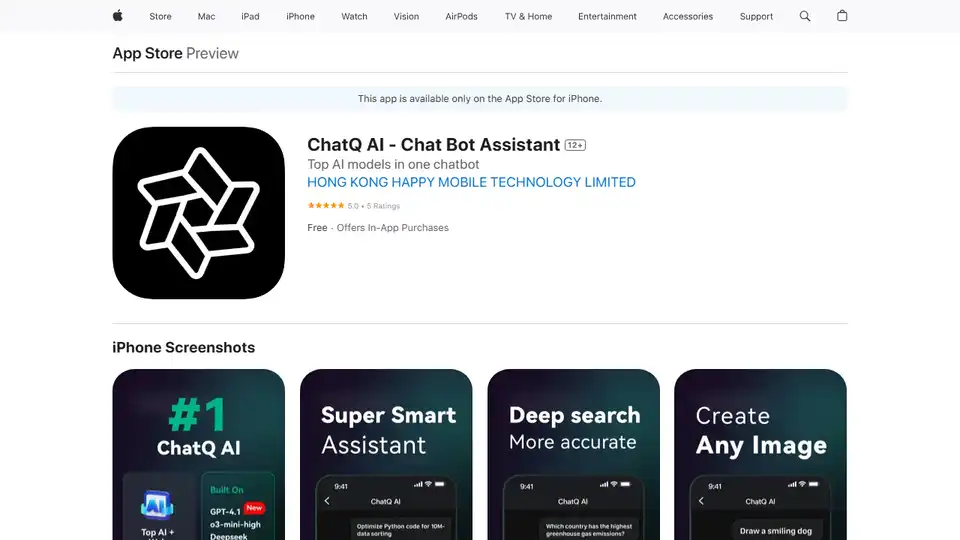
Chat AI Assist is a mobile AI office app powered by GPT-4o, offering AI writing, image generation, doc summarization, and deep search capabilities. Boost productivity with this smart AI assistant.
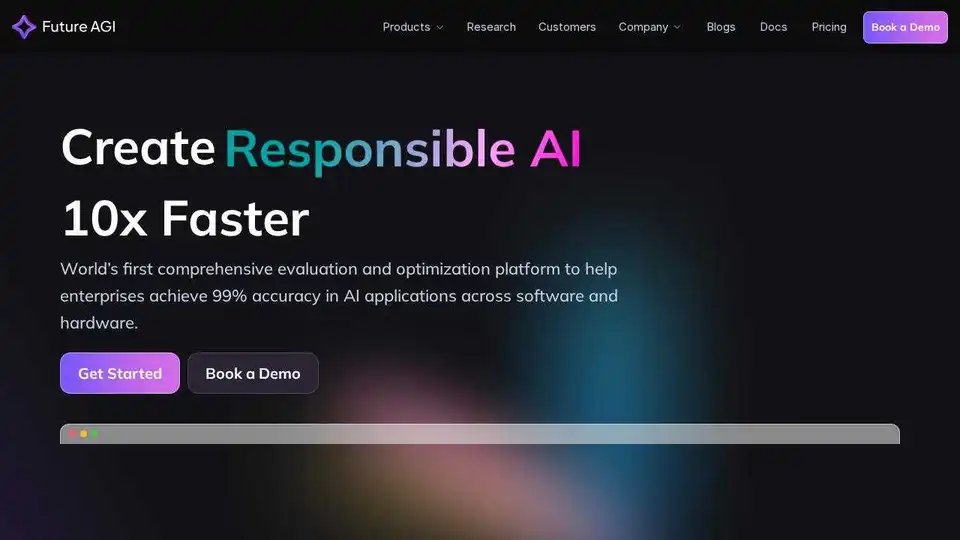
Future AGI offers a unified LLM observability and AI agent evaluation platform for AI applications, ensuring accuracy and responsible AI from development to production.
